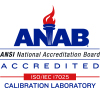 Posted on
Posted on 
Oil and gas rigs operate under high pressure and temperature conditions, making it essential to monitor pressure levels to prevent equipment failures and ensure worker safety. Pressure monitoring involves measuring the pressure within pipes, vessels, and other components of the drilling and extraction process to detect any fluctuations or abnormalities in the pressure levels.
There are several reasons why pressure monitoring is critical in oil and gas rigs, including:
Equipment Protection: High-pressure equipment such as valves, pumps, and pipelines are at risk of failure if the pressure exceeds safe limits. By monitoring pressure levels, technicians can detect pressure surges and take corrective action to prevent equipment damage.
Worker Safety: Workers on oil and gas rigs are exposed to high-pressure environments, which can be dangerous if not adequately controlled. Monitoring pressure levels is essential to ensure that workers are safe from the risks associated with high-pressure systems, such as ruptures or explosions.
Regulatory Compliance: The oil and gas industry is heavily regulated, and companies must comply with strict safety standards to avoid penalties and legal issues. Monitoring pressure levels is necessary to ensure compliance with regulatory requirements and prevent accidents that can lead to environmental damage or loss of life.
Cost Savings: Pressure monitoring can help reduce operational costs by identifying leaks or inefficiencies that can lead to wasted resources or downtime. By identifying and fixing these issues quickly, companies can minimize the impact on their operations and save money in the long run.
Environmental Protection: High-pressure systems can pose a risk to the environment if they fail, leading to spills or leaks that can have devastating consequences for local ecosystems. Pressure monitoring is necessary to detect potential leaks and prevent environmental damage.
Pressure monitoring is a critical part of oil and gas rig operations. By monitoring pressure levels, companies can protect equipment, ensure worker safety, comply with regulatory requirements, save costs, and protect the environment. To achieve this, pressure monitoring systems must be properly installed, calibrated, and maintained by trained professionals to ensure accurate and reliable readings.
To learn more, please contact MadgeTech at [email protected].








